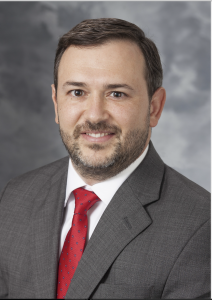 The increased prescribing of opioid medications has led to a widespread misuse of both prescription, and non-prescription opioids. How can surgeons assure that their patients are not at risk of misusing their prescribed medications? Tudor Borza, MD, MS, Assistant Professor in the Department of Urology, and Director of the Opioid Initiative for the Surgical Collaborative of Wisconsin, is researching how surgeon prescribing effects post-operative pain management and opioid misuse in the community.
The increased prescribing of opioid medications has led to a widespread misuse of both prescription, and non-prescription opioids. How can surgeons assure that their patients are not at risk of misusing their prescribed medications? Tudor Borza, MD, MS, Assistant Professor in the Department of Urology, and Director of the Opioid Initiative for the Surgical Collaborative of Wisconsin, is researching how surgeon prescribing effects post-operative pain management and opioid misuse in the community.
“As surgeons, we tend to give a lot more opioid medication than our patients need,” said Dr. Borza. “We also know that a portion of our patients will misuse their prescribed opioid medication.”
Through his research, Dr. Borza found that, in most urological procedures across the state, opioid prescriptions exceeded what a patient typically used by a magnitude of three. The misuse of these medications becomes a greater problem when patients do not properly dispose of their medication, leading to diversion and illicit use in the community.
“When diversion occurs, the prescribed medications are leaving the household and enter the grand marketplace for improper use. We know that the combination of misuse and diversion significantly contributes to the national opioid epidemic.”
So how can surgeons impact this process? Based on early results from Dr. Borza’s research, his team has developed a set of recommendations they call Wisconsin Surgical Analgesia Protocol (WiSAP), an easy reference pocket card on best practices for opioid prescribing, that have been distributed to over 75% of all hospitals in the state.
Beyond this research, Dr. Borza’s team received additional funding, allowing them to engage in more intensive research with the surgeons of the high overdose, southern regions of the state. Dr. Borza’s team has taken their recommendations from their initial research, and developed an online learning platform that will be available to surgeons statewide. This module will be available this summer and fulfill both state opioid and national continuing medical education (CME) requirements.
“We’ve incorporated what we’ve learned through the implementation of WiSAP, and built a platform that allows for increased access to surgeons across the state so that we can target interventions and reach critical populations.”
The next phases of Dr. Borza’s research involve examining opioid prescribing behaviors for rural surgeons, who face a unique set of challenges in this area.
“The more we can systemically understand this epidemic, the closer we will be to creating a better, healthier future.”